Dealing With Y Junctions or Fork in the road
Y junction or Fork in the road
Y Junctions
Similarly to a T-Junction, a Y-junction gets its name due to being shaped like the letter Y. At a Y-junction, a minor road joins a major road at an acute angle.
Y-junctions come in many forms, some that can be deceptive and unexpected. Y-junctions, as with any other type of junctions can be ‘open’ (easy to see traffic on the opposing road) or ‘closed’ (a blind junction obscured by foliage, fences etc) See road junctions for further information.
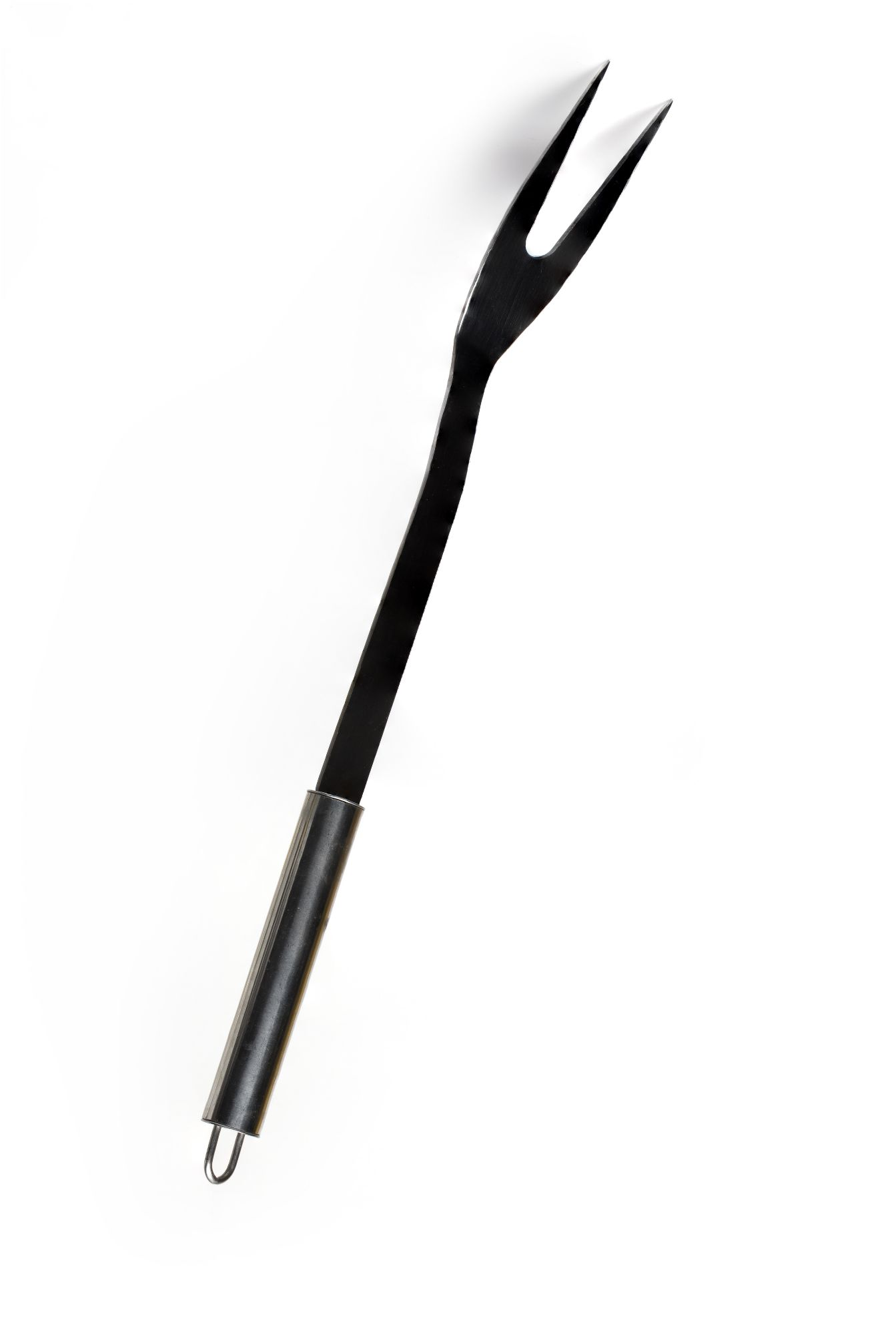
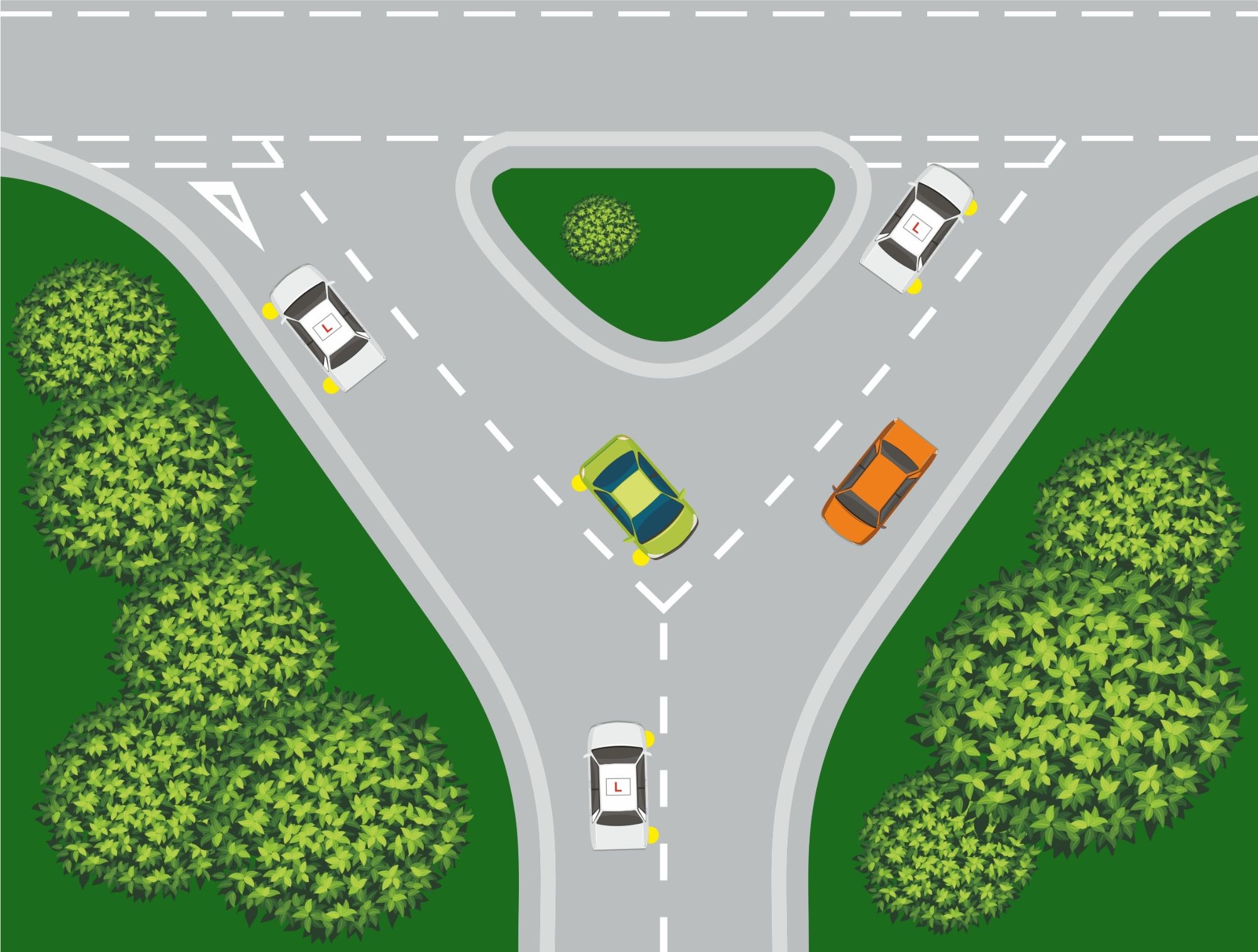
Y Junctions
Junctions can be hazardous. Due to the acute angle of the junction exiting the minor road onto the major road, A-pillars (the two pillars either side of the windscreen) can often produce a blind spot.
This blind spot can easily obscure a cyclist of motorcyclist.
To reduce the risk of accidents, always take sufficient time to look up and down the road at least twice before proceeding.
They are not that common but are designed to allow 2 seperate flows of traffic to exit at the same time
They are designed to let traffic exit the junction
from 2 seperate directions
So reducing the need for traffic queues and waiting times.
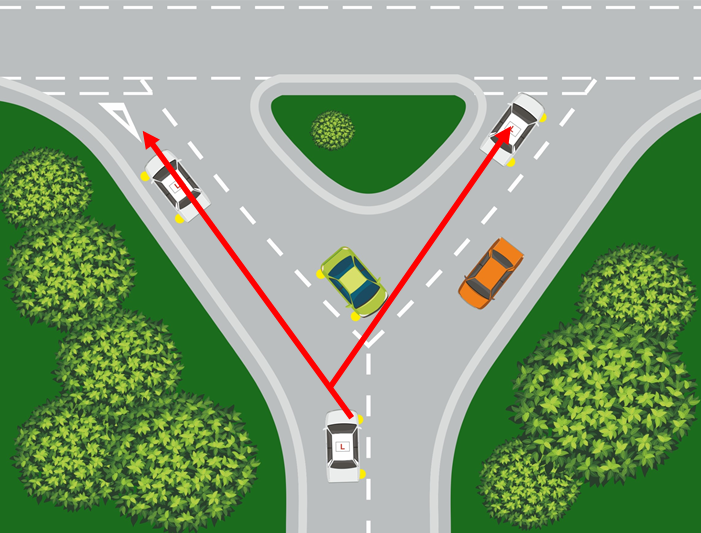
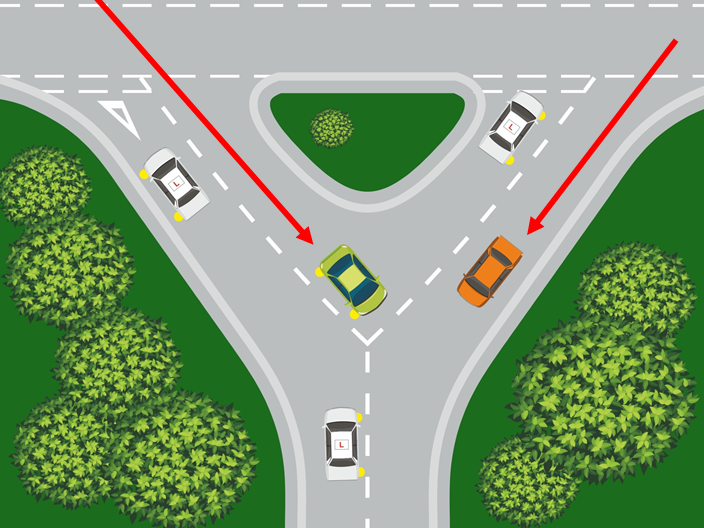
It also allows traffic to enter the road from 2 seperate directions
Reducing the amount of time traffic on the main road is slowed
down waiting for cars to turn
Turning Left
If you are turning left at one of these junctions
Then just think of it as a normal emerging situation.
Try and look and assess if its an open or closed junction
Use MSPSGL on approach, then decide whether you can go or need to give way

Turning Right
If you are turning right at a fork in the road or Y junction, you need to do it, in 2 seperate manoeuvres.
The first is as you approach and apply your right signal is to look for any cars that may be coming from the left side
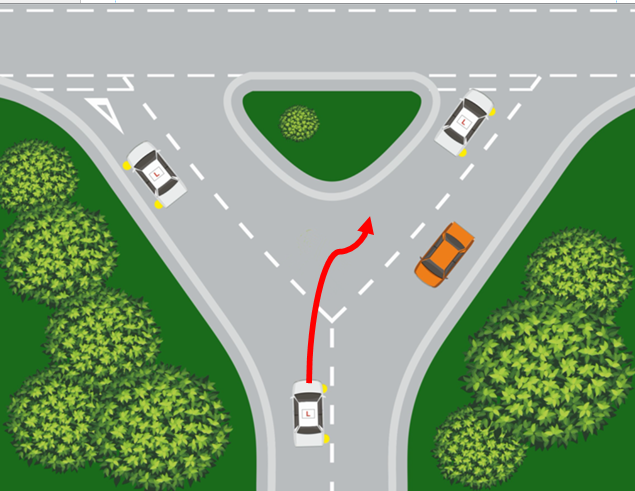
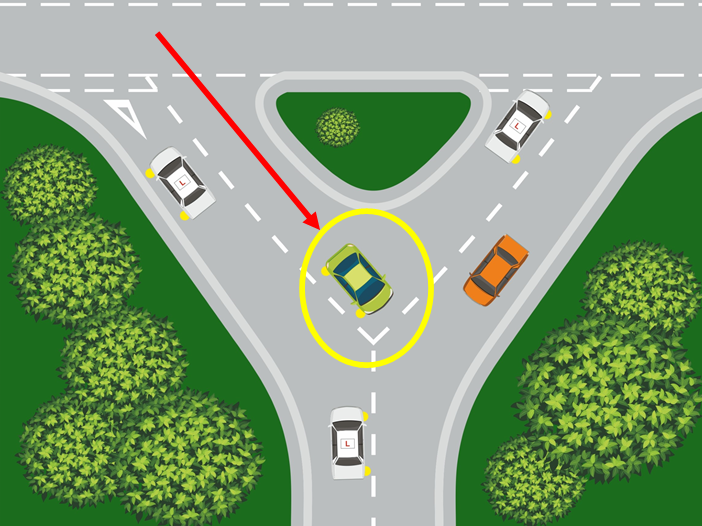
Beware of Cars from the left
Make sure that you look for cars approaching from the left as they to may need to give way to cars entering the junction from their left.
So you may expect the car to drive past you, so that you can go behind it, however, rather than drive past you it may just abruptly stop in front of you.
Then Deal With The Give Way Lines
Once you have dealt with cars coming from the left, the next thing to be aware of is the give way lines at the end of the road.
This part is easy to overlook or to try and do without proper observations.
But this is another danger zone because of the blindspot.
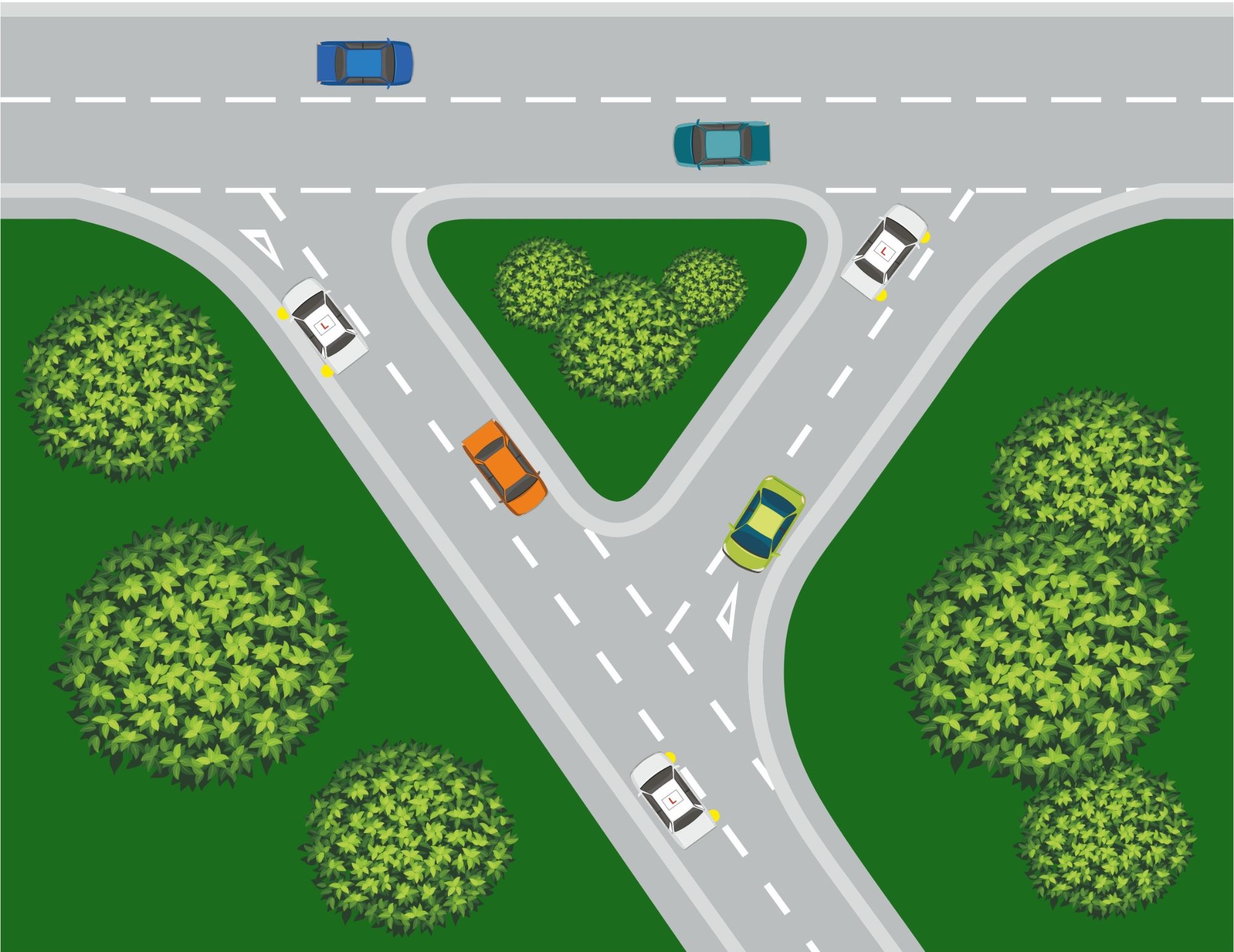
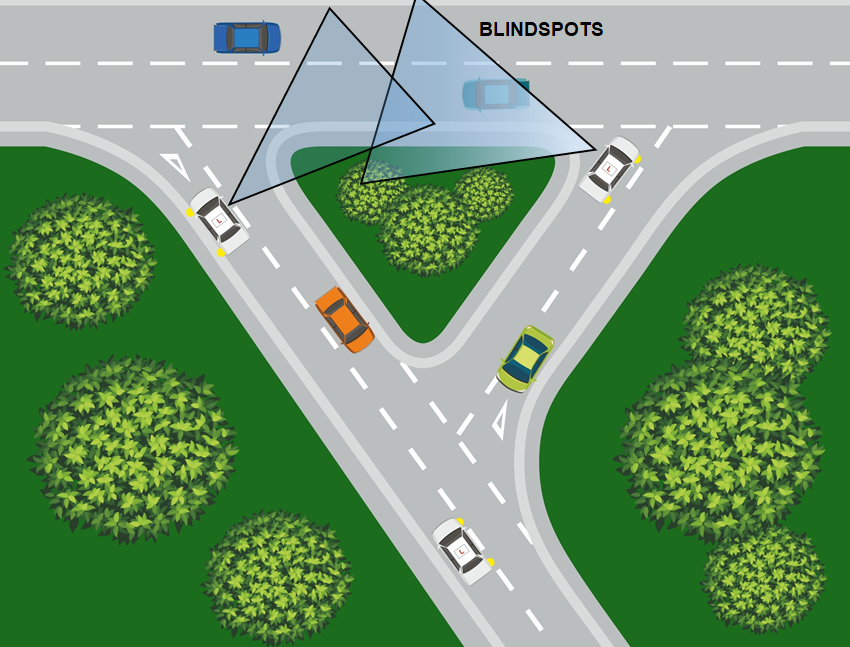
Give Way Line Blind Spot
Because of the angle of a fork in the road or a Y junction, it leaves a very large blindspot to the left.
It is all too easy to keep rolling over the line AS you look
The problem with this is, you need to know whether it is clear or not BEFORE you decide whether to go across the give way line
Not as you are already going across it.
Blindspot and Speed Limit
The other thing to keep in mind with the danger of the blindspot, is the speed of the road that you are emerging onto.
Not only do you need to make sure that you have enough time and space to pull out but also do you have time to get to the speed limit?
After all, if you are pulling out onto a 60 mph road, you really need to make sure of the gap in traffic, before you even try to decide whether it is safe to emerge.
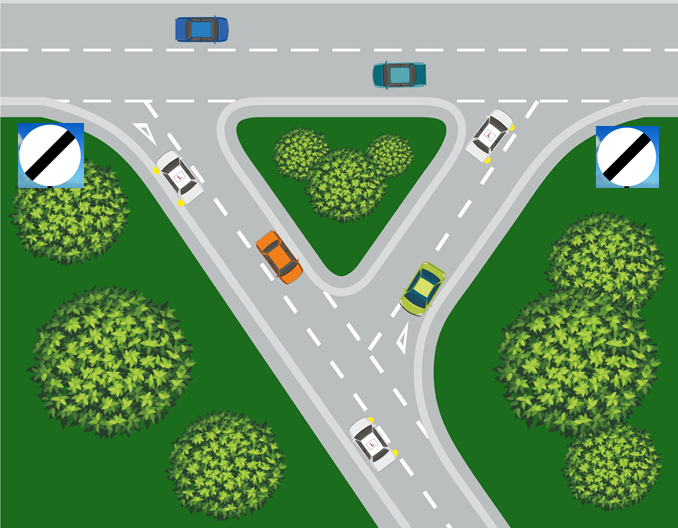
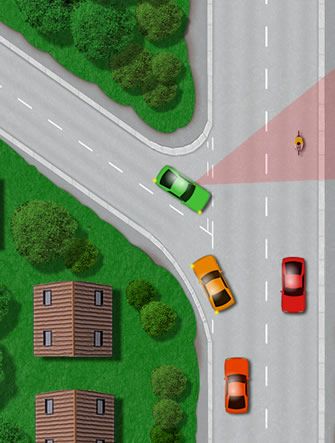
Mototrbikes and Cyclists
There are a few simple things you can do to keep cyclists safe at junctions:
- Cyclists might be going faster than you think (could be over 20mph) so judge their speed carefully before pulling out in front of them at a junction.
- Watch out for them on roundabouts – you still need to give way to cyclists approaching from the right.
- If a cyclist's turning right, wait behind them in the same way as you would for a car, rather than squeezing past or getting impatient.
- Expect cyclists in unexpected places – always check your mirrors before turning.
Contact Us
Hours
Monday - Friday:
09:00 am - 6:00 pm
Saturday - Sunday:
10:00 am - 3:00 pm